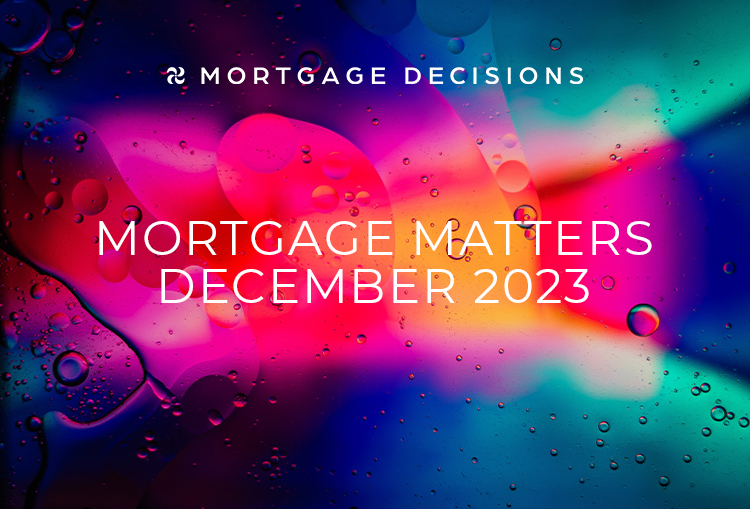- Mortgages
Mortgages
Bad Credit Mortgages
- Shared Ownership
- Insurance
Insurance
Life Insurance for Families
Life Insurance for Seniors
- Specialist lending
- About

Despite the turbulent end to last year, the mortgage market is finishing 2023 on a more positive note, with an improving outlook to 2024. Confidence and demand are improving as mortgage rates come down, and the economy continues to grow, with strong wage growth and high employment levels. However, with a general election likely in 2024, the market is likely to remain cautious.
Mortgage rates rose sharply during 2022 and the first half of 2023 as interest rates were hiked from 0.1% to 5.25% in a bid to curb escalating inflation. However, inflation has rapidly dropped in the final few months of 2024, more than halving since the start of the year (ONS), and lenders have cut their mortgage rates. Interest rates have been held at 5.25% for the fourth consecutive Bank of England meeting and are widely expected to start falling in the second half of 2024. Mortgage rates have been dropping in the last few weeks as lenders secure the remaining opportunities before the winter break, with strong competition and undercutting evident. The average two-year fixed deal is currently 6.02%, down from 6.86% in July. The five-year stands at 5.63% (Moneyfacts). Industry insiders are optimistic that if inflation continues to fall, average mortgage rates could fall below 5% in 2024.
Consumer confidence has hugely improved compared to the start of the year, from -45 in January to -24 in November (GfK Consumer Confidence Tracker). As inflation and mortgage rates continue their downward trajectory, those who were holding off may come back to the market in the new year, driving market activity. Mortgage approvals increased to 47,000 in October, an 8% uptick from September and an 18% improvement in January, as the outlook improves and buyers return to the market (Bank of England). Approvals for remortgaging also increased, from 20,600 in September to 23,700 in October, indicating an improving mortgage market for borrowers and increasing confidence. In previous months, this had fallen as more customers decided to take a product transfer deal with their existing lender, a common option when rates are rising.
Lenders are offering more competitive products and loosening up on criteria such as credit scoring, allowing more people to borrow. Mortgage loans are more flexible now than compared to the start of the year, with the feeling that there is something out there for everyone, such as products aimed at those who have failed their credit score. Product choice has risen for the fourth month in a row, taking the total number of mortgage products to 5,678, the highest number since March 2008 (Moneyfacts). A sharp rise in high loan-to-value (LTV) products has contributed towards this rise, with more mortgages with an LTV of 95% available on the market since the period prior to the mini-budget last autumn. The amount of time products are available for has also risen to 20 days, the longest since June (Moneyfacts).
The Bank of England has downgraded its forecast of those predicted to struggle to keep up with mortgage payments. Around 500,000 households are predicted to spend more than 70% of their post-tax income on their mortgage by the end of next year, down from 650,000 predicted in July. However, affordability still remains an issue, just under 900,000 per month will see mortgage payments increase by over £500 a month due to higher interest rates. Around one-fifth of that number are anticipated to see a jump of more than £1,000 per month (Bank of England). Many households are taking longer mortgage terms to protect their monthly cash flow in the face of higher interest rates; as many as 12% of new mortgages are now for terms of more than 35 years. The proportion of new loans extended for more than 30 years has reached 28% (Bank of England). Although in the short term this makes borrowing more affordable, it could increase the total debt borrowers have to pay over the longer term.
Disclaimer: The above is for information only. Independent regulated financial advice should always be sought when considering mortgage matters.
Your home may be repossessed if you do not keep up repayments on your mortgage.
There may be a fee for mortgage advice. The actual amount you pay will depend upon your circumstances.
The fee is up to 1% but a typical fee is £595.